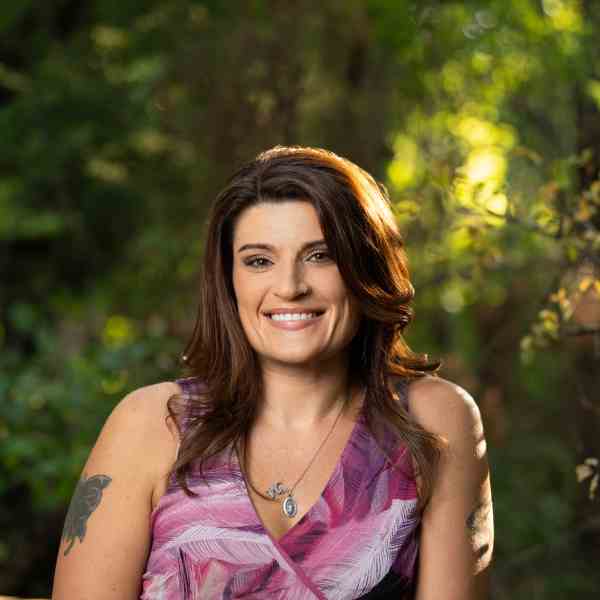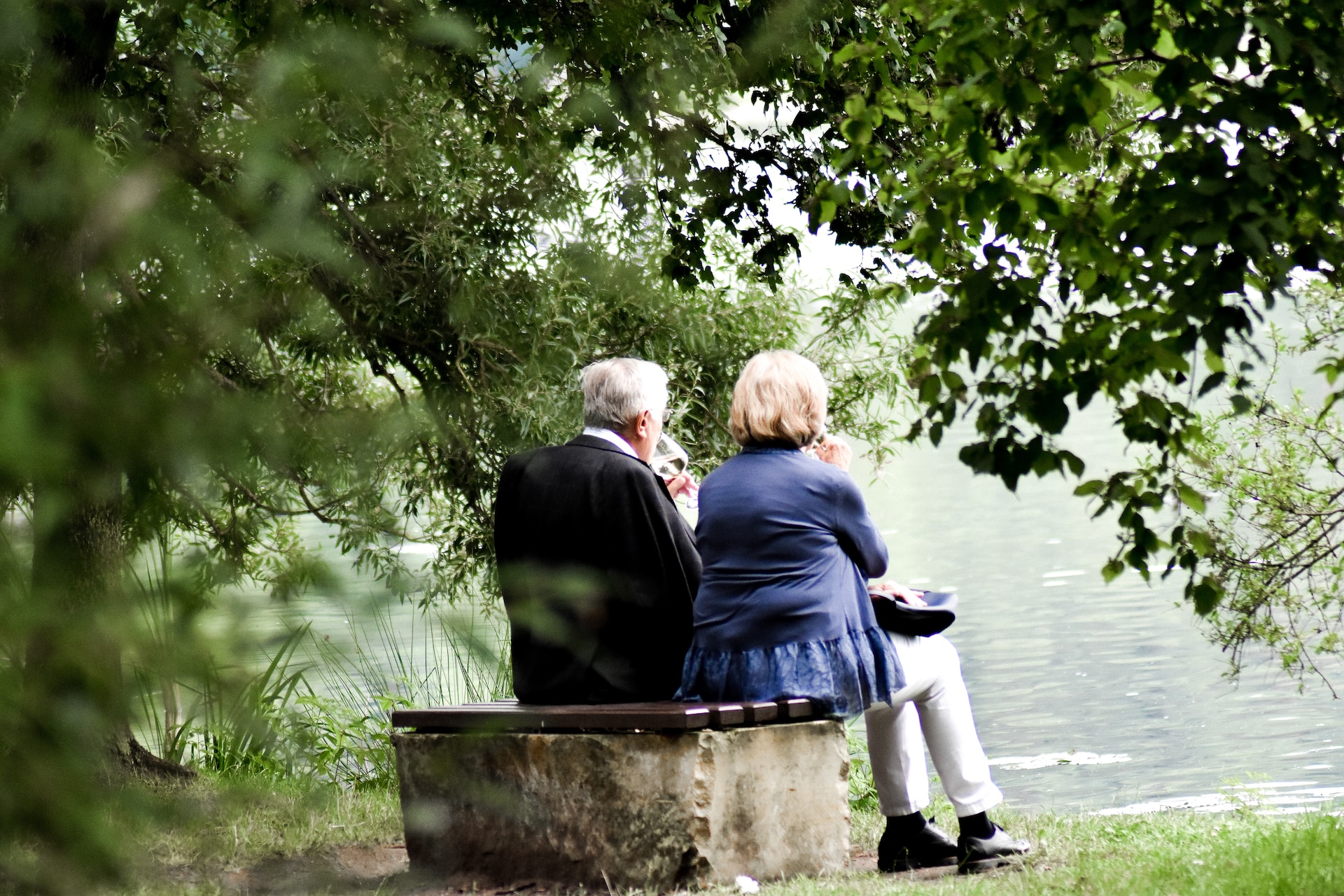A true friendship (as opposed to a toxic relationship) is one of God’s sweetest gifts, isn’t it? God decided that Adam should not be alone and created Eve to be his companion. In the New Testament, we learn that Jesus surrounded Himself with trusted advisors and authentic and loyal followers. He shared meals with them, laughed, and leaned on their friendship.
The Bible is full of examples of loyal and loving relationships for us to emulate – look at Ruth and Naomi or David and Jonathan. These healthy relationships are reflections (albeit they still fall short) of God’s love for us.
But let’s be realistic. Not every relationship is a fruitful and flourishing blessing. But most relationships start positive, or at least neutral. A new friendship may flourish and be filled with laughter, shared interests, kept secrets, and late-night heart-to-hearts. But these relationships can take a hard left turn, and before you know it, that once life-giving and sustaining connection feels complicated and maybe even harmful. And you feel trapped.
One of the most insidious parts of a toxic relationship is that it can be tricky and sneaky. They rarely come with a giant neon warning sign or a blaring alarm. And those that do are so obvious that we cut them off before they can make a big impact on our lives. It’s those relationships that gradually grow toxic that are the most damning.
These once positive relationships can turn toxic, quietly, often looking like something good at first, but over time reveal themselves to be something quite detrimental. Whether it’s an imbalance of power, disrespectful or abusive behavior, manipulation, or a desire to control the other person, the relationship dynamic can shift gradually.
Unfortunately, no relationship is immune. Romantic, platonic, and family relationships all have the potential to become toxic, and that shift in dynamic can have a substantial impact on your life.
The hard truth is that toxic relationships can leave you questioning your judgment, your decisions, and sometimes even your faith. But here’s the good news. Though God designed us to live in community, He didn’t intend for us to live in relationships that harm us.
When you start to recognize the signs of a toxic relationship, you can take steps to protect your heart and find the kind of friendship that God truly wants for you. The kind that points you to the Lord, helps to fulfill His good plan for your life, and builds you up rather than tearing you down.
9 Types of Toxic Friendships
So, how do you recognize these toxic relationships? Let’s name them because shining a light on the darkness is the first step to freedom.
The Gossip You confided in your friend about a deeply personal struggle, only to find out that they have shared this information with others. Not only have they broken your trust, but they influenced others’ attitudes toward you negatively.
The Mooch You let your friend borrow money during a tough time in their life, but now that it’s time to repay, they ghost you. Of course, it isn’t just about the money but about the feeling of being used and then discarded.
The One-Sider You’re always the one initiating plans and showing up to help meet your friend’s needs, but they’re always “too busy” to offer support when you’re in need. It can be exhausting to pour into someone else who never seems to reciprocate.
The Climber Your friend starts distancing themselves from you after meeting new people, leaving you feeling replaced and used. This type of toxic friend values status over loyalty and image over genuine connection.
The Competitor Every accomplishment you share becomes a competition, with them downplaying your success or trying to one-up you. One-upmanship is a sign of insecurity and can corrupt even the best of relationships.
The Public Betrayer Your friend embarrasses you publicly, mocking you in front of others or posting hurtful information or unflattering photos online. Some people try to raise their own social status by bringing others down, but sometimes at the cost of a friendship.
The Drama Magnet Your friend lives a life of chaos and is always dragging you into it, making their emergencies your emergencies and leaving you emotionally drained. You may dread talking with this type of friend because you know it will be a negative interaction.
The Promise Breaker They make a promise to you about showing up for a big moment, or maybe that they will be there in a crisis, but rarely follow through. It’s not hard to see where someone’s priorities lie; just look at where they invest their time.
The Ghost Out of nowhere, your friend stops returning phone calls and texts and even avoids making eye contact when she sees you from a distance. The silent treatment, while frustrating, can be more easily understood in the context of conflict, but is even more off-putting when you don’t know the root cause of the shift in behavior has not been communicated.
What to Do
 Do any of those descriptions sound familiar? Unfortunately, most readers will be able to identify at least one of these toxic types of friends in their lives. And what is even more unfortunate is that we enable these relationships to continue. We make excuses for the toxic friends in our lives, saying things like, “Oh, they’re just having a bad day” or “That’s just how they are.” But down deep in our hearts, we see the warning signs and know that something just isn’t right.
Do any of those descriptions sound familiar? Unfortunately, most readers will be able to identify at least one of these toxic types of friends in their lives. And what is even more unfortunate is that we enable these relationships to continue. We make excuses for the toxic friends in our lives, saying things like, “Oh, they’re just having a bad day” or “That’s just how they are.” But down deep in our hearts, we see the warning signs and know that something just isn’t right.
What do we do when this shift from relationship bliss to toxicity happens? Start by acknowledging the problem without making excuses for the other person’s behavior or defending the friendship. Don’t minimize your feelings or pretend that you’re okay, and assume it is your “cross to bear”.
Bring the situation to God in prayer and ask for His wisdom and guidance. Next, set clear boundaries to help protect your mental, emotional, physical, and spiritual health. This will look different depending on the relationship, but might include limiting contact, communicating your needs, or stepping back entirely from the relationship that is causing you harm.
None of us is perfect, which means we will not be the perfect friend, and even the best relationships have their fair share of challenges. It’s a natural ebb and flow of human interactions.
But there is a big difference between the occasional misunderstanding or snarky comment and a relationship that consistently chips away at your connection with the Lord, peace of mind, or confidence. God didn’t call you to be a doormat or stay stuck in connections that harm you. He called you to love others and to walk in wisdom, even when that means walking alone.
Seek Therapy for a Toxic Relationship
Identifying and walking away from toxic relationships is necessary, but not always easy. If you need additional help dealing with a toxic relationship in your life, a licensed Christian therapist can help. An unbiased and trained third party can be the lifeline you need to help you see the path to healthier relationships and a more peaceful life.
Call our office today to schedule your first appointment with one of the licensed Christian therapists at our location. They can give you practical guidance on conflict resolution, and communication advice, and help you determine if your relationship needs to be altered or eliminated.
Photo:
“Ducks”, Courtesy of Drazen Nesic, Unsplash.com, Unsplash+ License
-
Marissa Erickson: Author
Throughout our lives, challenges arise that may be beyond our ability to overcome. Everyone needs a safe space, support, and, at times, guidance to work through those challenges. My goal and purpose is to provide that space and support to help you na...
Recent Posts
-
Kate Motaung: Curator
Kate Motaung is the Senior Writer, Editor, and Content Manager for a multi-state company. She is the author of several books including Letters to Grief, 101 Prayers for Comfort in Difficult Times, and A Place to Land: A Story of Longing and Belonging...
Recent Posts
DISCLAIMER: THIS ARTICLE DOES NOT PROVIDE MEDICAL ADVICE
Articles are intended for informational purposes only and do not constitute medical advice; the content is not intended to be a substitute for professional medical advice, diagnosis, or treatment. All opinions expressed by authors and quoted sources are their own and do not necessarily reflect the opinions of the editors, publishers or editorial boards of Stone Oak Christian Counseling. This website does not recommend or endorse any specific tests, physicians, products, procedures, opinions, or other information that may be mentioned on the Site. Reliance on any information provided by this website is solely at your own risk.






